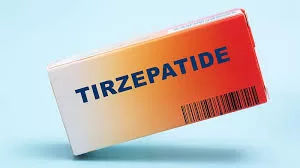San Antonio, TX – November 4, 2024 – Once-weekly tirzepatide (Zepbound) has demonstrated dramatic results in preventing the progression from prediabetes to type 2 diabetes (T2D), with a 94% reduction in risk over three years, according to new findings from Eli Lilly’s SURMOUNT-1 trial. The results, presented at The Obesity Society’s ObesityWeek conference and due to be published in The New England Journal of Medicine on November 13, 2024, highlight the long-term efficacy of the medication in tackling prediabetes and obesity.
The study, which included a subset of 1,032 individuals with prediabetes, revealed that tirzepatide not only prevented the onset of T2D but also maintained significant weight loss throughout the treatment period. However, the benefits began reversing when the drug was discontinued.
Remarkable Results: 94% Risk Reduction
In the on-treatment analysis, just 1.2% of participants treated with tirzepatide at doses of 5, 10, or 15 mg progressed to T2D over 176 weeks. This compares to 12.6% of those receiving a placebo, reflecting a 94% reduction in the risk of developing diabetes (hazard ratio: 0.06, P < .001). These results indicate that for every nine people treated, one case of T2D was prevented.
Dr. Leigh Perreault, co-investigator and associate professor of medicine at the University of Colorado Anschutz Medical Campus, called the findings “absolutely astounding.” “You could prevent diabetes in 94% of people, and so very few people went on to progress to diabetes. This is something that’s never been seen before,” she said. The study also revealed that nearly all participants taking tirzepatide reverted to normal blood sugar levels, compared to just 60% of those on placebo.
Sustained Weight Loss and Other Health Benefits
Tirzepatide was associated with significant weight loss, ranging from 15.4% to 22.9% across different doses, with an average weight reduction of 34.6 to 54.2 pounds from a baseline of approximately 237 pounds. This weight loss was maintained throughout the 176-week period, compared to a modest 2.1% reduction in the placebo group. Improvements in waist circumference, blood pressure, and lipid profiles were also sustained during treatment.
Patient-reported outcomes reflected continued benefits, with participants noting improvements in their quality of life. While most adverse events were mild to moderate and related to gastrointestinal issues, they were primarily observed during the dose-escalation phase, and no unexpected events occurred.
Challenges After Discontinuation
The study’s off-drug phase, which lasted 17 weeks following 176 weeks of treatment, revealed a slight reversal in benefits. Approximately 7% of the weight lost during the treatment period was regained, and A1c levels gradually returned to baseline. Additionally, eight more participants developed T2D after stopping tirzepatide, nearly doubling the total number of cases among those who had been treated with the drug.
Dr. Perreault emphasized the importance of considering obesity as a chronic condition requiring long-term management. “People who use medications for asthma, depression, or diabetes, we have a structure of chronic medical management for certain conditions. It’s time to look at obesity in the same way,” she stated.
A Step Toward Precision Medicine
Dr. Susan Yanovski, senior scientific advisor for clinical obesity research at the National Institute of Diabetes and Digestive and Kidney Diseases, commended the study’s long-term results. “These are very impressive data, the fact that people could maintain that weight loss for so long,” she noted. However, she also raised the issue of what happens when medications like tirzepatide are used for extended periods, stressing the importance of understanding long-term effects.
Francesco Rubino, MD, chair of bariatric and metabolic surgery at King’s College London, pointed out that not everyone with prediabetes will inevitably develop T2D, suggesting the need for a more personalized approach. “The next step is to fine-tune the indications and figure out how to prioritize who gets treated with medications like tirzepatide,” he said.
The ongoing research into tirzepatide and similar treatments is part of a broader push toward precision medicine, where therapies are tailored to individual patient needs based on factors such as lifestyle, genetics, and underlying causes of obesity. As Dr. Yanovski concluded, “The GLP-1 drugs do seem to work for many patients and seem to have many health benefits. It’s a very gratifying development in the field.”
Disclosure: Dr. Perreault has received fees for speaking and consulting from Novo Nordisk, Eli Lilly, and others. Dr. Rubino is an advisor to various companies, including Eli Lilly. Dr. Yanovski has no disclosures.












